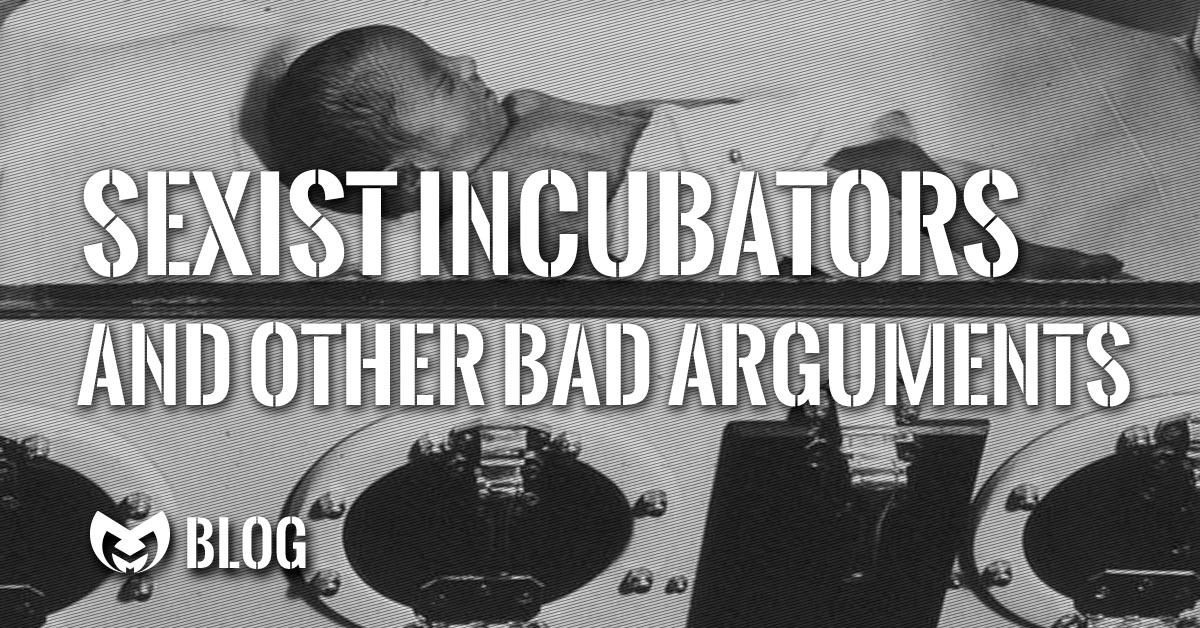Spend any amount of time online watching abortion discussions via social media, and you are likely to encounter a whole host of bad arguments made by both sides. As the so called “abortion wars” heat up, incredibly bad ideas are given fertile ground in which to grow.
A recent argument of sorts is no exception. Attempting to reframe the abortion debate as a debate that is really about the rights of “real” women, some abortion choice advocates have attempted to adopt personhood language of the sort used by pro-life advocates. Abortionist Leah Torres, notorious for her bizarre Twitter rants, recently Tweeted to her followers to “stop calling it a fight over abortion, and to call it what it really is: A fight to grant pregnant people personhood, basic human rights, and autonomy”.
Other pro-choice activists have made similar claims. A recent documentary, “Personhood”, portends to show the dangers of recognizing “fetal rights”.
Undoubtedly, acknoweledging abortion as wrong will lead to inevitable changes in law and in required behavior on the parts of women and men. However, such fear mongering about women losing their rights as persons is unfounded.
A scene from the 2012 movie Lincoln is instructive. Towards the end of the film, President Lincoln meets with several Confederate peace delegates aboard the steamship River Queen. Lincoln makes the remark that “If we submit ourselves to law…and submit to losing freedoms; the freedom to oppress, for instance, we may discover other freedoms previously unknown to us.”
The line is fictional, as President Lincoln and the delegates kept no record of their conversation; however, the message is clear. When we have made ourselves comfortable with our “freedom” to harm and destroy other innocent human beings, then of course it will be uncomfortable to live according to the shared equal dignity of those we once mistreated. As was true with slavery, so it is true with abortion.
The idea that pregnant women will lose their status as persons is absurd for a number of reasons. For one, it’s sexist: Why should anyone believe that a woman’s status as a person is solely dependant upon her ability to undergo a special surgery that makes her more like a man in not carrying a child to term? As one author puts it poignantly, it is abortion itself that has led to a denial of a woman’s dignity, not the pro-life position. Writes Mary Rosera Joyce:
“By lockstepping the woman with her physician, the [US Supreme Court in Roe v. Wade] was not acknowledging her dignity as a person, but was adjusting to something construed as defective in her nature: her inconvenient tendency to produce unwanted ‘fetal tissue’ as a result of her sexual contact with an ‘infecting’ male…Doctors who treat normal, healthy physical conditions as if they were deformed are practicing quackery.”
Second, it needs to be kept in mind just what is done in abortion. Pregnancy can be and often is difficult, but can that difficulty really balance against the cost the unborn child will be asked to pay? A nine month inconvenience is simply not comparable to being killed outright. It’s not even close.
At the very least, laws requiring adults to not to take the life of an innocent human being is not a denial of their personhood, but rather, an acknowledgement. Persons have at the very least a duty to not take the lives of other persons without proper justification.
In addition, parents do have a unique responsibility to take care of their own children. Think about how we respond to stories of child neglect and reckless child endangerment. Requiring parents to provide for the basic needs of their born children(or finding a better equipped party who can) is clearly not a denial of a parent’s personhood. The documentary claiming that women will lose their “rights” if their prenatal child is given the right to life is ridiculous. As Helen Watt points out:
“If the fetus is already a person, then the fetus is already a child: the child, perhaps, of quite specific people, whether or not they will raise it as their social child. It is far from clear that a child may be deliberately killed simply to avoid raising or relinquishing him or her: what would we say about a man who killed an infant on those grounds? Perhaps the man has been ‘left holding the baby’ in an isolated area and is afraid of having to care for the child long-term. But does that justify infanticide?”(emphasis in original)
A similar accusation has also become popular as of late, claiming that laws restricting abortion treat women as incubators or as fetal containers. However, as Helen Watt again points out, this is an incorrect assumption to take:
“Does recognizing such an obligation in the context of pregnancy involve treating women as incubators or ‘fetal containers’? Surely not: If I am a pregnant woman, it is no more treating me as an incubator to expect me to respect my baby’s body and allow it to remain within my own than it is treating the baby’s father as a cradle to expect him to avoid violent, reckless or negligent treatment of the baby after birth. At least until such time as other carers can take over, it is reasonable to expect those supporting a child to continue to do so, and in any case, to avoid deliberate harm and/or harmful bodily incursions on the child.”
The very idea that women will lose their status as “persons” if they are required to respect the lives and bodies of their own children is just absurd fear-mongering. In fact, the opposite is true. An inclusive view of human value treats us all as full members of the human family bearing the same basic duties and responsibilities to every other human life.


Leave A Comment